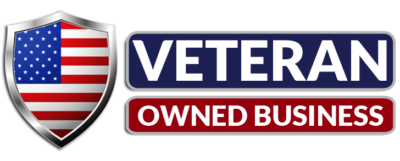Whether you are self-managed or considering self-management for your condo community or homeowners’ association you don’t have to go it alone. The Board has several options. Besides finding a solid volunteer Treasurer you can use a full service management company, a CPA, a bookkeeper or a specialty company to help. Continue reading to learn more about condo financial, HOA financial and community financial management options: pros and cons
Volunteer Treasurer
If you have a neighbor that has the time to commit to this role, the experience and the character it can be a great way to go.
Pros
Low Cost – the main benefit of course is that it is virtually free.
Committed – the person can be committed to the role since they live there.
Cons
Relationships – personal relationships may get in the way of collecting neighbors monies.
Not a Specialist – the volunteer probably does not have any community association accounting experience or know about any state laws or requirements.
No Tools – The software tools that allow owners to view and pay assessments online and provide other features specific to community associations cost more money and Boards typically don’t pay for this or the required training.
Less Oversight – besides the board, which may not pay attention, no one is inspecting the work
done and this in some cases can lead bad things.
Full Service Management Company
You may have interest in working with a full service management company.
Pros
More Help – this option provides financial management and administrative functions as well as additional help from a community manager.
Expertise – a good management company should have qualified and trained staff that know about community associations and its regulations.
Tools – industry software have special features that boards and unit owners want.
Cons
Cost – it is expensive. I often hear complaints like: “for all we pay we don’t get a lot”.
Poor Service – oftentimes communities became self-managed because they were tired of unresponsive service, no one answering the phone, don’t get a call back and questions go unanswered.
Ulterior Motives – some management companies offer maintenance and real estate brokerage services. They may offer a low management price to sell these higher profit services to the association. The lower price just means they are not investing in their accounting department.
Accounting Weakness – Management companies may not have focused on their accounting department since it is a cost center and not a profit center. They don’t have good accounting staff, don’t provide training and don’t have the best systems. We often hear complaints that financial reports are inaccurate or not sent out regularly.
Less Attention – a full service company may offer to do only your financial management but they may not give you the attention they give their “full management” clients that pay more.
Certified Public Accountant (CPA)
You may be attracted to the expertise of working with a CPA.
Pros
Expertise – CPA’s know accounting. They use that knowledge to supervise their staff and ensure quality financial reporting.
Specialist – A CPA that specializes in community associations is a real asset. They can keep you in compliance with state regulations and use best practices to make sure your association is on sound financial footing.
Cons
Cost – they can be expensive as they have additional regulations and requirements they have to follow.
Conflict – if they handle your audits they can’t do your bookkeeping as it’s a conflict of interest.
Non-Specialist – if the CPA doesn’t specialize in community associations they can make mistakes.
No Tools – They may not be using the best industry specific software with features that will make a board’s job easier and make unit owners happy.
Service Degradation – Service response can be poor during times of the year when tax statements are due. Also if most of the practice works with businesses your community may not be a priority.
Bookkeeper
Someone may know a bookkeeper and suggest working with them.
Pros
Lower Cost – Bookkeepers tend to be less costly than working with a CPA.
Expertise – they have experience and can do a good job of keeping the books
Cons
Non-Specialist – unfortunately a bookkeeper doesn’t usually have expertise in community associations and this can create mistakes as they don’t understand best practices and any community association regulations.
No Tools – generally, due to cost, they don’t have community specific software systems with features that will help your board and unit owners.
Service Degradation – they often are solo practitioners so there is no backup when they are out of the office which delays answers to questions. Also many bookkeepers also work with small businesses and you may have delays during times of the year when tax statements are due. Also if most of the work is for small businesses your community may not be a priority.
Specialist Business
You can work with a company that specializes in only providing financial and administrative support to community association boards. This is like a community management company without the managers.
Pros
Expertise – they have experienced accounting staff that are experts in collecting funds, paying bills and producing financial reports.
Specialist – they are community association specialists – they know the lingo and the laws. A person in management usually has a community association management professional designation.
Tools – the service will offer the best industry software with features that makes the board’s job easier and unit owners happy.
Additional Services – some will provide mailing and administrative support, when combined with financial tasks the board will save time by having over 55% of the work of operating a community done.
Cost– you will save over 50% of the cost of “full management”.
Cons
Cost – It’s not free like having a volunteer do all the work.
Location – the company probably is not located in your town. The services will be provided online and remotely (owner payment questions answered over the phone, financial reports emailed to the board, etc.) but this also helps keep the costs reasonable.
There are 5 options available to help the board with its condo financial, HOA financial and community Financial Management. Each of them have pros and cons to consider. Remember when making your choice, instead of using lowest price, let your guide be what will make the unit owners happy and what will reduce the board’s workload while still knowing the community’s money is safe.


